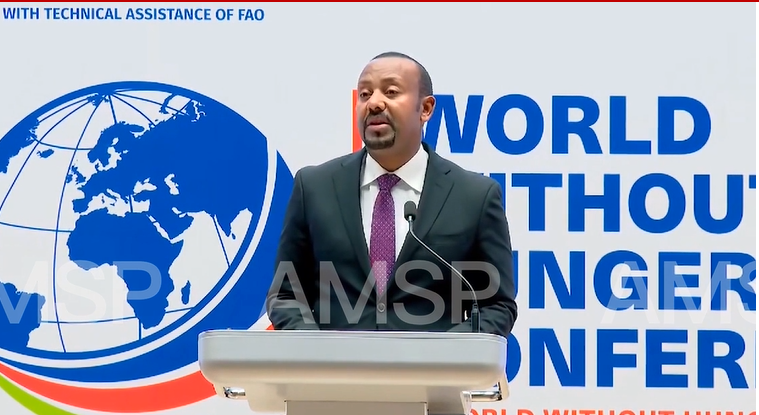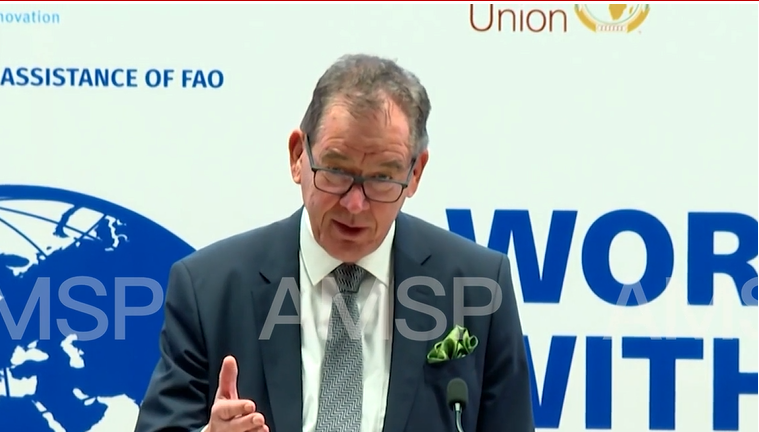November 8th (AMSP/CGTN) – – A senior UN official has called on African countries to ramp up their agricultural output.
While speaking at the “World Without Hunger” conference in the Ethiopian capital, Addis Ababa, the head of the Industrial Development Organization said countries should not be net importers of food at such a time of great global uncertainty. However, Gerd Muller said Africa has everything it needs to ensure food security, and new technologies can help them.
The World Without Hunger Conference focused on innovative solutions to combat hunger, particularly in regions affected by food insecurity and climate change.
Addressing participants, Ethiopia’s Prime minister Abiy Ahmed emphasized the importance of regional cooperation in this push…, as well as the need for more sustainable agricultural practices. ” To combat hunger, we need to transform our food systems by moving beyond traditional agricultural practices and embracing aggro-industrialization. This involves investing in agricultural inputs, energy accessing, and processing technologies while prioritizing food security. Achieving success in this endeavor requires a collaboration approach between governments, the private sector, farmers, researchers and international organizations, working together, ” Prime minister Abiy Ahmed underscored.

UN officials, as well as experts from around the world, shared their insights on best practices, whilst hailing the emergence of innovative solutions such as vertical farming, agroecology, and enhancing supply chain efficiencies to reach vulnerable populations.
The head of the UN’s Industrial Development Organization (UNIDO) said Africa has the resources to ensure everyone can be fed. ” Here in Africa, ending hunger is possible. This continent has greater potential. 60 percent of the world’s available land is here. Six of the fastest growing economies are African countries. Ethiopia’s Prime minister Abby Ahmed is one of these successful countries, ” Gerd Muller, Director-General of UNIDO disclosed.

Panel discussions and workshops have covered topics such as climate change’s impact on food supply, the role of technology in agriculture, and strategies for reducing food waste.
Muller says some countries have gone backwards in terms of agricultural output since the independence era, and it’s time to change that. ” Productivity is still too low. And the infrastructure in rural areas is poorly developed. Many African countries have gone from being exporters to importers since 1960, ” Gerd Muller deplored.
The host country, Ethiopia, has had problems with food security in the past, but prime minister Abiy Ahmed explained how the government managed to remedy the situation. ” Our strategic focus on wheat production marks a significant achievement. Through expanded irrigated farming and modernizing agricultural practices, Ethiopia produced 230 million quintals of wheat in the past year. This irrigated wheat alone contributed 107 million quintals cultivated across three million hectares, ” Abiy Ahmed pointed out.
The World Without Hunger Conference also addressed the challenges posed by conflict and political instability, which have exacerbated hunger in many areas.

The “World Without Hunger” conference marks an important step forward in addressing humanity’s greatest challenge, food insecurity. As global leaders return home, the real work begins; putting pledges into action to ensure food security for all.
amsp/cgtn
CGTN

